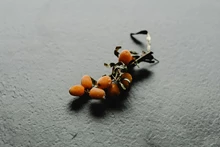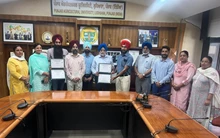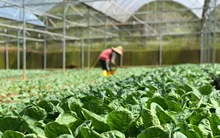
Dr. Gurdev Singh Khush, an international rice breeder who is part of an 11-member advisory panel set up by the Punjab government to make recommendations on the upcoming agricultural policy, said on Thursday that the state government should stop providing free power supply to agriculture tubewells in order to save underground water.
After attending the advisory panel meeting, he stated that farmers should be encouraged in different ways so that the environment can be spared while farmers gain. "I recognize that it is a political choice that is difficult to reverse abruptly, but the government should create a means to reverse the situation," he stated, adding that he would include the matter in his list of agricultural policy ideas.
The government can discontinue providing free power to wealthier farmers who do not require it and continue to provide it to small and marginal farmers who own 2-3 hectares of agricultural land. "That is a significant issue for the state administration to save underground water," he said, adding that with free power, there was no restriction on underground water usage. The state has 14 lakh agriculture tubewells, and the estimated power subsidy for the fiscal year 2023-24 is more than 9,000 crore.
Noting that there was no check on the use of underground water with free power, he proposed assisting farmers by providing technical know-how as well as techniques and means to save underground water. "There is a need to protect natural resources," he stated, recommending that farmers use drip irrigation, which he claims saves 30% of water. "There is a need to provide this system to farmers," he added.
Dr. Khush believes that the area under paddy in the kharif season and wheat in the rabi season should be lowered as well. Replace wheat land with mustard land because it will be economically beneficial to the country because 56% of cooking oil is imported. "Instead of paddy, plant soyabean, sugarcane, maize, and maize sorghum," he stated.
The policy will be presented on June 30. The Punjab government has chosen to push out the unveiling of the new agriculture policy, which will also include dairy, fishery, and horticulture, to June 30. According to a senior officer in the state agriculture minister's office, the members of the advisory group requested a time extension, which was granted by state agriculture minister Kuldeep Singh Dhaliwal.
International wheat breeder Bikram Singh Gill, a plant breeder at the University of Kansas in the United States, vice-chancellor Punjab Agricultural University, former vice-chancellor of Punjabi University BS Ghuman, and chairman Punjab state farmers' commission Sukhpal Singh, who is also the head of the advisory panel, also attended the meeting.











